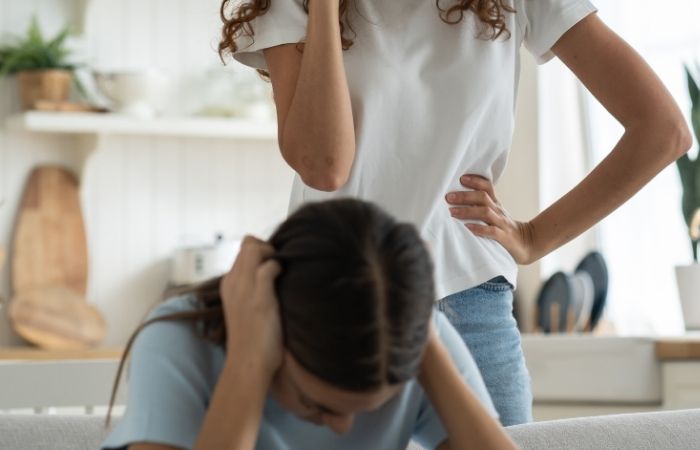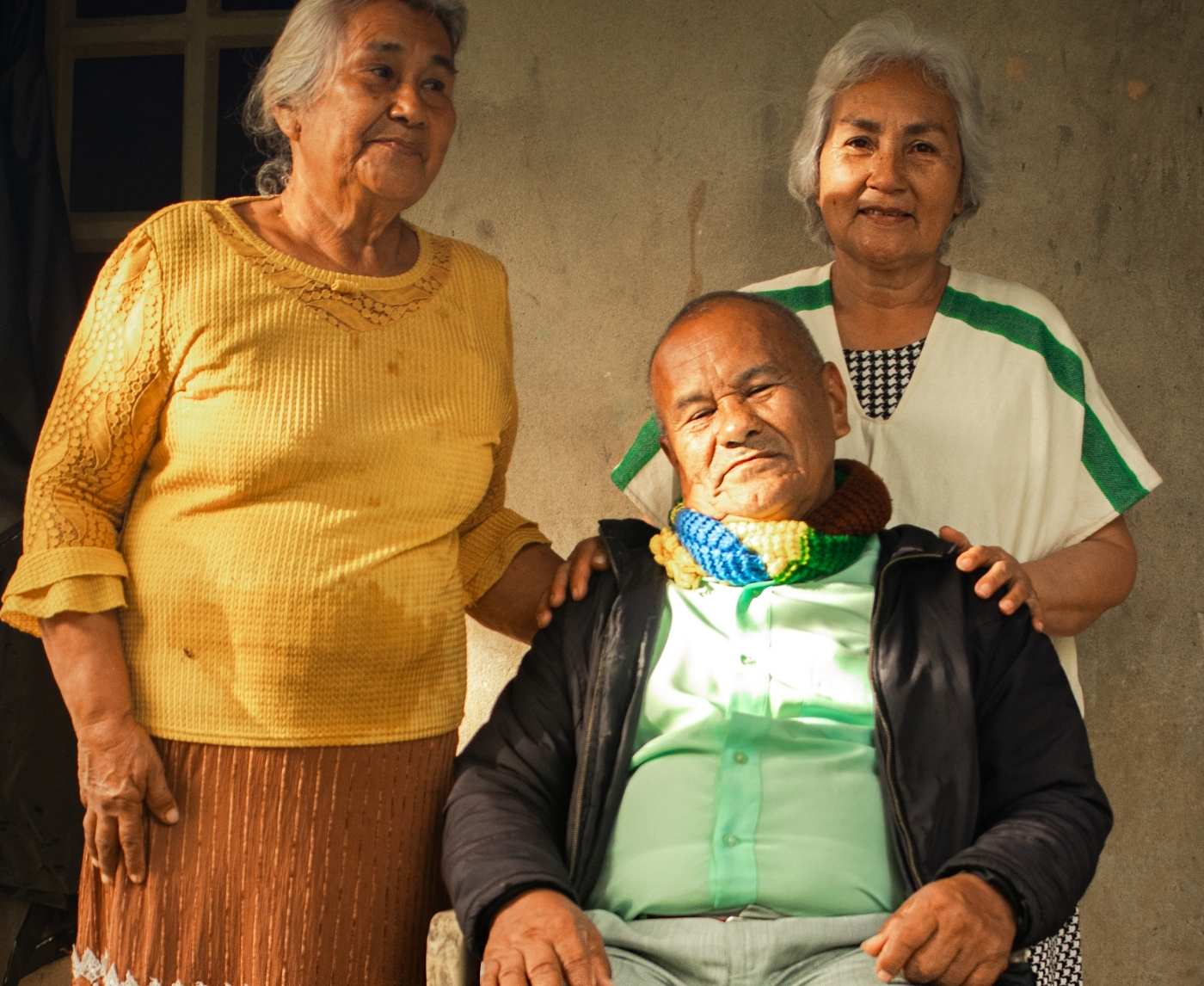Quick Answer: Yes, you can get tested for STDs privately, even if you live with your family or are under 26. Talking to your abuela or parents about it doesn’t have to end in shame. Use empathy, facts, and backup plans like at-home testing to make it manageable.
When Family Is the First Barrier
For many in Latino communities, especially first-gen households, sexual health isn't discussed until something goes wrong. You might hear stories about “those girls” or whispered warnings, but actual conversations? Almost nonexistent. Now try bringing up STD testing in that environment. Cue the cultural landmines: religious guilt, fear of being labeled “promiscuous,” or straight-up disbelief that you're sexually active at all.
Maritza, 22, put it bluntly:
“When I told my mom I needed to get tested, she cried and asked if I had AIDS. I just wanted to be responsible.”
These reactions aren’t about you. They’re about decades of stigma, lack of education, and fear. The truth? Testing is normal. Shame is not. And keeping secrets only makes it harder to take care of yourself.

People are also looking for: How to Tell the Difference Between STDs and Similar Infections
Start with This: Know Your Why
Before you open your mouth, get clear on why you're getting tested. Are you starting a new relationship? Did a condom break? Are you just being proactive? Knowing your reasons will help you stay grounded when the conversation gets emotional or weird.
Here's a script starter that shifts the focus:
“I care about my health and want to be responsible, not because something’s wrong, but because it’s what adults do.”
“I’m not ashamed. I just want to make sure I’m okay and protect my future partners.”
You don’t owe anyone graphic details. You do owe yourself honesty and protection. Especially if you're still under your family’s insurance or living at home, having this talk, even awkwardly, might be the bridge to safer decisions.
Real Talk: Why Abuela Might Freak Out
Let’s not sugarcoat it; your abuela might take it hard. Not because she doesn’t love you, but because sex talk outside of marriage wasn’t even a thing in her generation. Add Catholic guilt, machismo, and generational trauma, and you’ve got a recipe for shutdown.
But silence doesn’t keep you safe. Empathy helps. Here's how to approach the convo:
- Pick a calm moment: Avoid dropping this mid-family dinner. Find private time when no one’s rushing or stressed.
- Start with values: “You’ve always taught me to take care of myself. That’s what I’m doing.”
- Keep it short and firm: You’re not asking for permission. You’re informing them, with respect.
It’s okay if she gets uncomfortable. Let her sit with it. You’ve planted a seed. And maybe, you just cracked open a space for honesty that no one else dared before.
Check Your STD Status in Minutes
Test at Home with Remedium7-in-1 STD Test Kit

 For Men & Women
For Men & Women Results in Minutes
Results in Minutes No Lab Needed
No Lab Needed Private & Discreet
Private & DiscreetOrder Now $129.00 $343.00
For all 7 tests
Can You Get Tested Without Your Family Knowing?
Short answer? Yes. If you're over 18, you have the legal right to get tested confidentially in the U.S., no parental permission needed. But for those still on a parent’s insurance plan, explanation of benefits (EOBs) may notify them after services. If that's a dealbreaker, consider these alternatives:
- At-home STD test kits: You can discreetly order, test, and view results without anyone knowing. Try the Combo STD Home Test Kit.
- Planned Parenthood or free clinics: Many offer confidential services and sliding scale costs.
- Telehealth: Some online providers offer testing and treatment, fully private.
Being afraid of your family’s reaction is valid. But being left untreated because of that fear? Not worth it. Your health matters more than their assumptions.
How to Use Humor (and Survival Tactics)
Sometimes, the best way to survive a deeply awkward convo is with a little levity. You're not making light of the situation, you're just defusing a cultural bomb.
Ty, 20, shared this move:
“I told my abuela I was writing a school paper on STD awareness in Latino families and asked what she thought. It was sneaky, but it worked. It opened the door without me outing myself.”
Other tactics that work:
- Blame TikTok: “Everyone’s talking about it online. I figured I should check myself too.”
- Use a friend as cover: “My friend just got tested and it made me realize I should too.”
- Make it medical, not moral: “It’s like getting a physical. Just part of staying healthy.”
Even if you bend the truth a little to get the conversation started, you're still being brave and doing the right thing. That’s not manipulation. That’s survival.
Use Family Stories to Open the Conversation
Abuelas are the heart of family history, full of stories about health, resilience, and tough decisions. Tapping into that legacy can transform an awkward medical talk into a moment of connection and cultural pride.
- Start with shared memories: “Do you remember the time we all worried when tío José had hepatitis B? How he went through treatment and came out stronger?” This reminds her that testing isn’t shameful, it’s smart.
- Show ancestry pride: Tell her you want to honor the “strong women before us” by taking health seriously. “Grandma María got checked regularly, and look how strong she stayed into her 90s!”
- Invite her wisdom: Ask, “Abuela, what advice would you give me?” Framing the testing discussion as a request for her insight gives her respect, and makes it her story too.
By weaving cultural memory, her fears, her strength, her survival, into the health talk, you lessen embarrassment and make it a shared journey instead of a lecture. Testing becomes a bridge, not a barrier.
What If They React Badly?
Deep breath. It might happen. Yelling. Accusations. Silence. Emotional blackmail. You’re not crazy for fearing the fallout. But here’s the reframe: their reaction doesn’t define your decision. You’ve chosen truth, care, and accountability. That’s power.
Lucía, 19, said,
“My mom flipped out at first. Called me names. But after a week, she actually asked me where to get tested too. Turns out she had never been, ever.”
Don’t bank on that kind of full-circle moment. But know that by going first, you might start a chain reaction. Even if it’s messy. Even if it’s hard. You’re breaking silence for every cousin, sibling, or friend watching you lead by example.

People are also looking for: At-Home STD Testing for Couples: A Shared Responsibility
You Don’t Need Permission to Protect Yourself
If you’re waiting for the “right time,” or hoping for full family support before getting tested, stop. That moment may never come. And you don’t need it. You need safety. You need information. You need care.
At-home tests are discreet, accurate, and life-saving. You can start now, with zero judgment, and get results in days. Whether you choose to tell anyone afterward is your call. But what matters most? That you did it.
Take back control. You don’t need permission to know your status.
When the Silence Ends With You
Let’s be real: no one wants to be the first in their family to bring up STD testing. It’s awkward. Vulnerable. And it can feel like betrayal, especially when older relatives equate sexual health with sin or shame. But if you're reading this, you already know silence hasn't helped us. Generational silence leads to undiagnosed infections, emotional repression, and preventable suffering.
Testing doesn’t mean you’re “dirty” or “fast.” It means you're informed. And when you choose to speak up, even in fear, you start to change the story for everyone coming after you.
Try This: The “Soft Entry” Approach
If a full-on sex talk sounds like too much, try easing into it. Use outside info as your opener. News articles. TikToks. Stats. Even this blog.
- “Did you know Latino communities have higher rates of undiagnosed STDs? That’s wild.”
- “I read that you can get an STD from oral sex and not even know. Kinda scary, right?”
- “I found this test kit that works at home. It’s private and fast. I think I’m gonna do it.”
This lowers the emotional intensity and gives your abuela (or parent) space to process without feeling attacked. You’re offering info, not confessing a crime. You’re protecting your health, not asking for judgment.
Let’s Be Clear: You Deserve Care
At the end of the day, this isn’t about your grandma’s reaction, your mom’s assumptions, or your dad’s denial. It’s about your body, your future, your peace of mind. STD testing is healthcare. Period. And you don’t have to explain away your humanity to deserve it.
Whether you talk to them today, next month, or never, get tested anyway. Your courage doesn’t need a permission slip.
Check Your STD Status in Minutes
Test at Home with Remedium8-in-1 STD Test Kit

 For Men & Women
For Men & Women Results in Minutes
Results in Minutes No Lab Needed
No Lab Needed Private & Discreet
Private & DiscreetOrder Now $149.00 $392.00
For all 8 tests
FAQs
1. Can I get an STD test without telling my family?
Yes. If you are 18 or older, you can legally get private STD testing. Many states have laws that let minors give consent for sexual health services, even if they are under 18.
2. What if my parents get the bill for the insurance?
After services, insurance may send you an Explanation of Benefits (EOB). If privacy is very important, use at-home kits or free clinics that don't bill insurance.
3. What should I say to my abuela about getting tested for STDs?
Pick a calm time, be careful, and talk about health, not guilt. You can say you're doing it to be safe and responsible, not because something is wrong.
4. Will people judge me for getting tested?
Maybe, but that judgment is based on stigma, not truth. Testing is not careless; it is responsible. You're on the right track.
5. Is it possible for me to test at home without anyone knowing?
Yes. STD kits that you can use at home are discreet, accurate, and come in plain packaging. You don't have to go to the clinic.
6. What should I do if my family gets mad?
Stay calm and tell them that you are acting out of love and maturity. It's okay for them to feel the way they do, but your health comes first.
7. Is it rude to talk about sex in front of older people?
It all depends on the situation. But your safety is more important than old rules. You can be direct and polite at the same time.
8. What STDs should I get tested for?
Chlamydia, gonorrhea, syphilis, herpes, HIV, and HPV are the most common. A combo test tests for more than one thing at once.
9. Is it possible for me to get tested even if I don't have any symptoms?
Yes, and you should. A lot of STDs don't show any symptoms. The only way to be sure is to get tested regularly.
10. How often should I get tested?
Get tested every three to six months, or after having sex with a new partner, having sex without protection, or being at risk of exposure.
You Deserve Answers, Not Assumptions
If you’re holding back from getting tested because you’re afraid of what your abuela, your parents, or your tía might say, take a moment. Breathe. You’re not bad. You’re not broken. You’re brave for even thinking about this.
Whether you say it out loud or handle it solo, the most important step is action. Get tested. Take care of your body. Honor your health the way our ancestors never had the chance to.
Sources
1. U.S. Department of Health – STI Testing: Conversation Starters
2. Oncology Nurse Advisor – Culturally Sensitive Communication Tips with Hispanic Patients
3. KQED / NPR – 4 Tips for Talking to Your Latino Parents About Sensitive Topics










